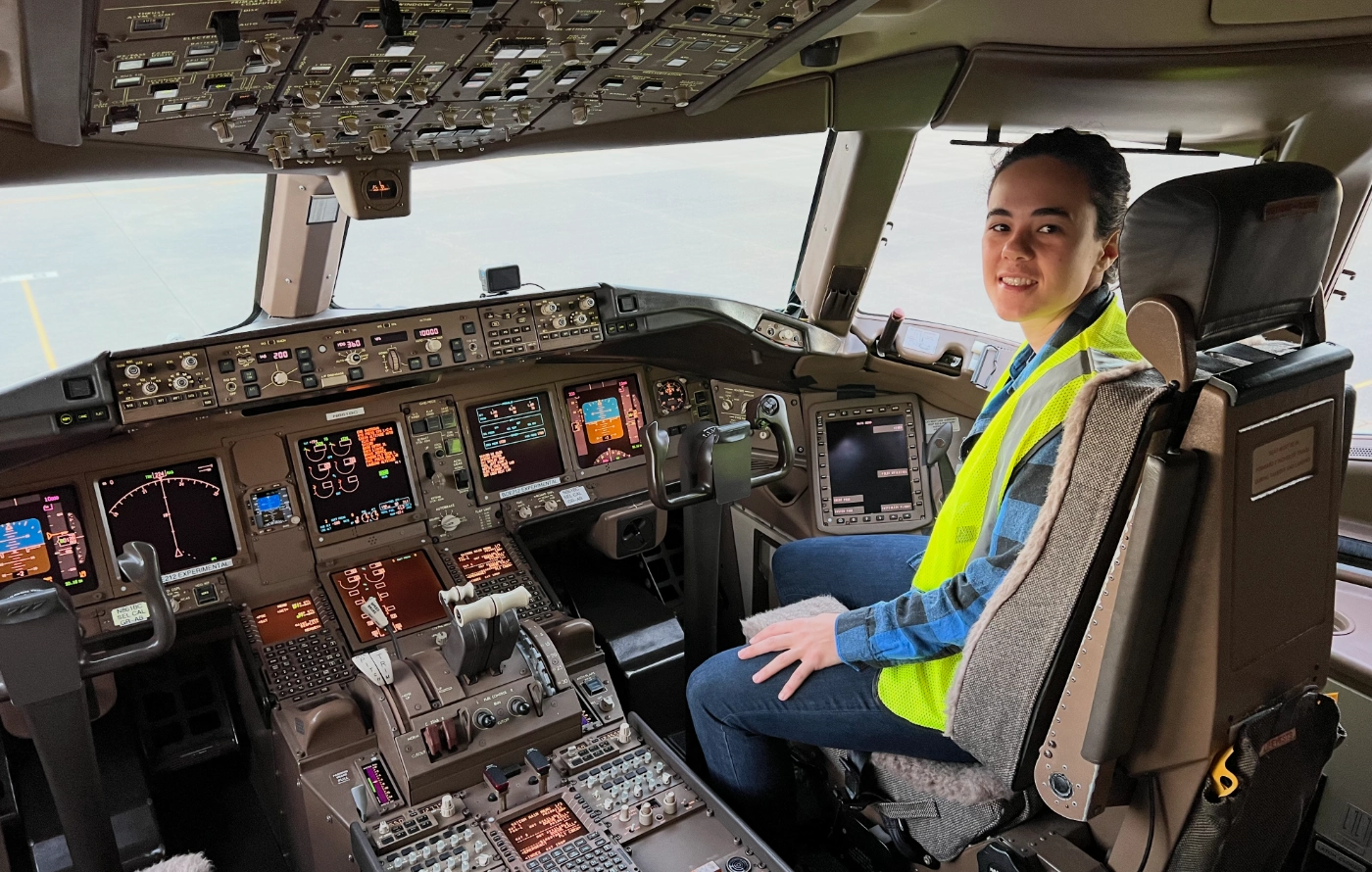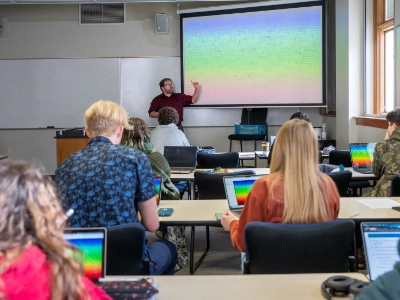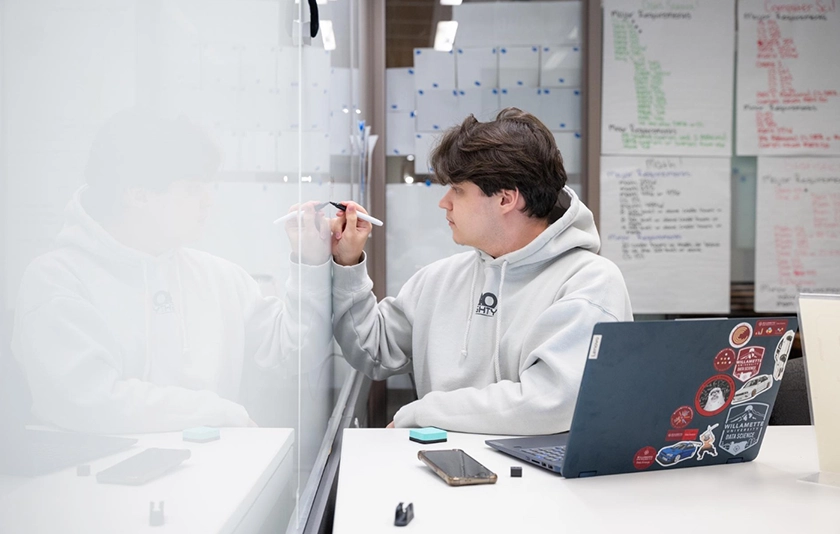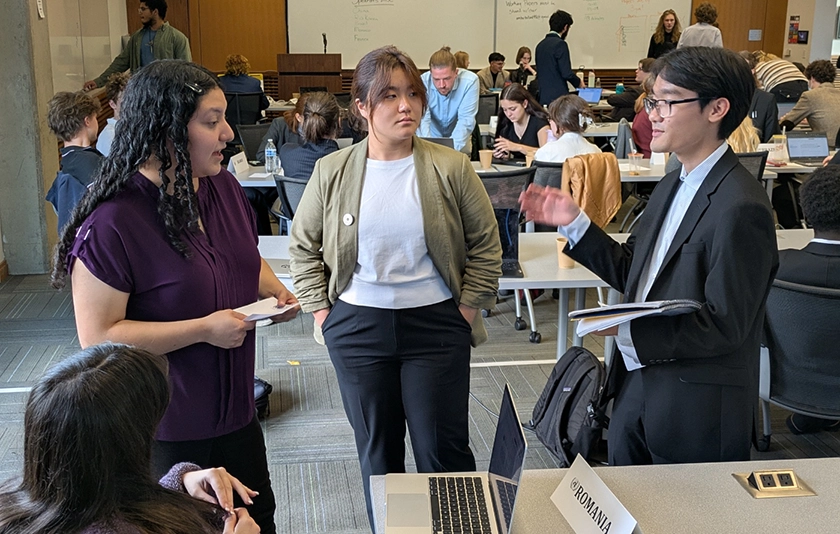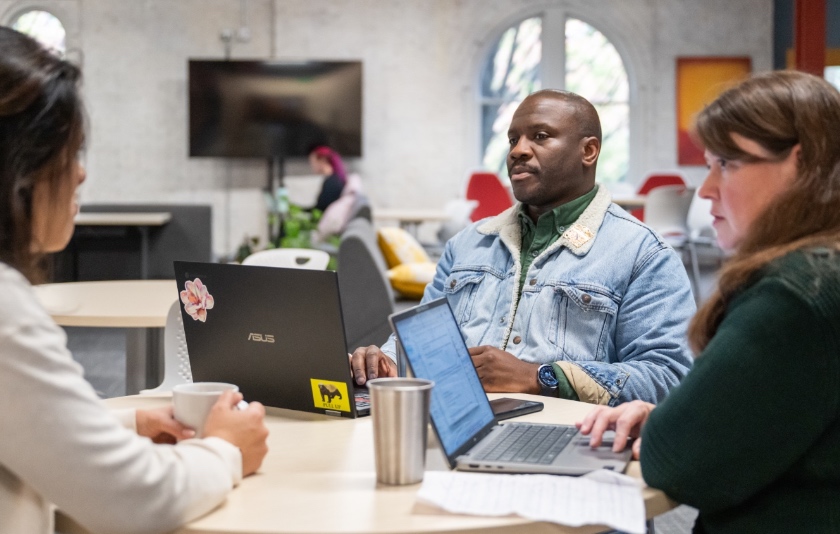From her office steps away from an airplane hangar at Boeing, Sophie Clarke MBA’19 is helping to improve air travel by implementing testing programs for new technologies from self-sanitizing lavatories to eco-friendly aircraft. It's exactly the kind of problem-solving that drew her to work as an industrial engineer, a field that bridges business operations and strategy with technical innovation.
The real-world experience Clarke gained in the Willamette MBA program proved invaluable preparation for her role as an industrial engineer. Starting fall 2026, Willamette University will offer students the chance to follow in Clarke's footsteps with its new Industrial Engineering degree program, designed to meet growing demand for professionals who can tackle everything from manufacturing efficiency to sustainable technology implementation.
Clarke says that what makes a good industrial engineer is someone who can bring technical systems and people together. While technical knowledge plays a role in her work, being able to understand and manage people is even more crucial.
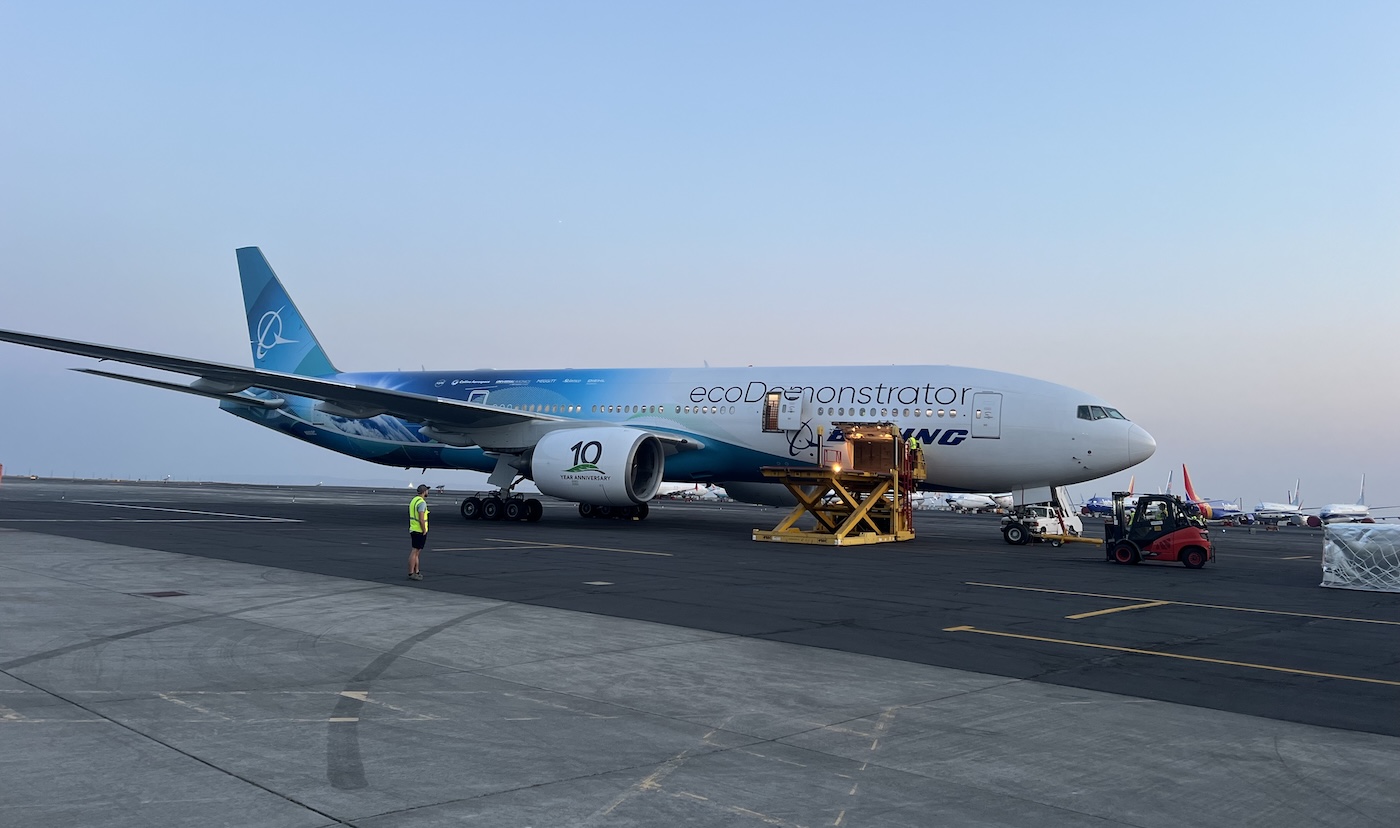
“The best way to be an industrial engineer is to understand not only the systems you're working with, but understand the people you're working with,” Clarke says. “People who work on airplanes and are mechanics are going to see the world pretty differently from people who are engineers who are very technically smart, but not so hands-on. So understanding different types of people and asking how are you seeing the system versus how are these other people seeing the system is really important.”
A career takes flight
Clarke got her professional start with the help of Willamette’s Office of Career Development. Her first role was in operations and process management as a summer intern at Kaiser Permanente. She then gained further experience in logistics managing beverage delivery systems for Anheuser-Busch brewing.
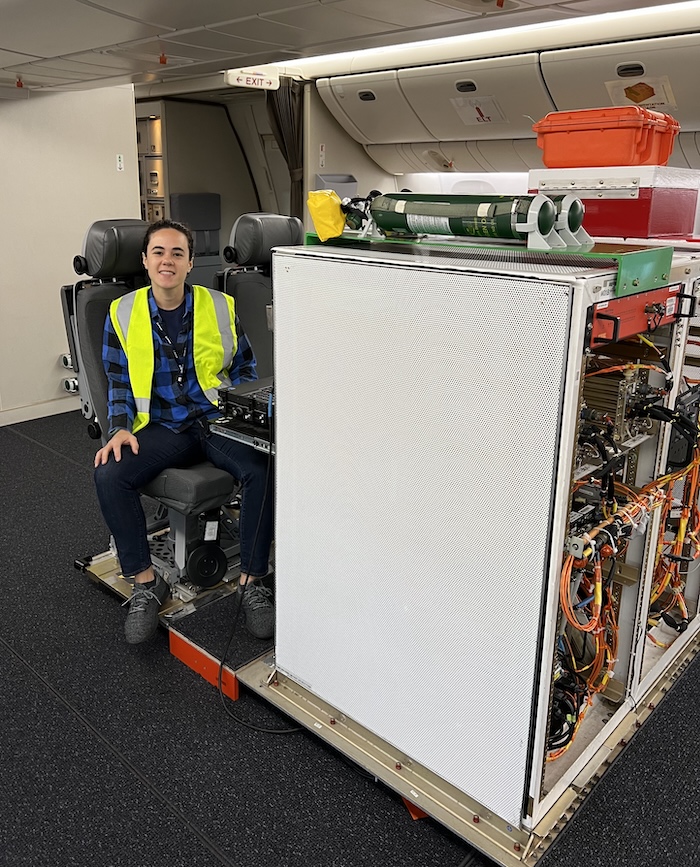
Then, with a Willamette MBA and some work experience under her belt, Clarke felt ready to apply for an Industrial Engineer role at Boeing, even though she didn’t have an engineering degree. In the role, Clarke has to bring together people from all areas of Boeing, including mechanics, flight crews, and business leaders.
“There’s people in charge of testing, there’s people who are in charge of the configuration of the airplane, and then there’s all this work that has to be done,” Clarke says. “I’m the person in the middle who takes all of this information and I make schedules, track progress, and make sure it’s going smoothly.”
Clark works with planes on a daily basis but is the first to admit that she’s not an aviation expert. Her role requires a keen ability to process and communicate information — skills she honed in her MBA program. In her classes with former Professor of Management Practice Larry Ettner, she mastered the art of public speaking.
“I used to hate public speaking,” Clarke says. “Now in my job, I have to lead meetings and I talk to groups of people in situations where you have to know what you're talking about and speak confidently. So that experience was really valuable.”
Drawing on the practical experience and close faculty mentorship she gained at Willamette, Clarke has been able to build an exciting career bridging people and systems to build the next generation of airplanes.
“Where Willamette specifically stood out to me was just the teachers, the quality of the teachers, the smaller class sizes, and the level of interaction,” Clarke says.
Clarke’s journey from a Willamette classroom to the cutting edge of aviation is a testament to the power of applied learning, personal mentorship, and the kind of leadership that puts people at the center of innovation.
“At Willamette, the emphasis isn't just on getting in, learning the material, and getting out. There's real-world applications, there's more working with other people. The professors are really invested in your success.”
